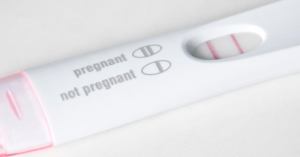Amid an era of self-isolation, social distancing and mandated business closures, all out of concern for coronavirus, many have been looking for a light at the end of the tunnel. Unfortunately, that might not come any time soon, as Dr. Ashish Jha, director of the Harvard Global Health Institute, said during a Q&A session on Facebook live, via CNN.
“This is not a virus that goes away in two weeks or four weeks or six weeks. We are going to be living with this, in one form or another, for 12 to 18 months if we are lucky,” Jha said. “Once we have a vaccine that’s effective and widely deployed we can bring the pandemic to an end. Until that time, we are going to continue to have to confront and deal with the virus.”
Videos by PopCulture.com
The news is not optimal, especially as one percent of all U.S. citizens, or more than three million people, applied for unemployment the week ending March 21. It’s the most filings of any week since the Department of Labor began tracking the data back in 1967.
“At a certain point, we will get the spread of the virus under control,” Federal Reserve Chairman Jerome Powell told the TODAY Show on Thursday. “At that time, confidence will return, businesses will open again, people will come back to work. So you may well see a significant rise in unemployment, a significant decline in economic activity. But there can also be a good rebound on the other side of that.”
Currently, 22 states have some type of stay at home order in place, and there are more than 1.5 billion people around the globe who are self-isolating, either by choice or by government mandate. The efforts are being made to help slow the spread of coronavirus and, at some point in the future, return to some semblance of normalcy.
As of Thursday, there have been 68,440 reported cases of COVID-19, the disease caused by coronavirus, and 994 total confirmed deaths, according to The CDC. They also offer a number of tips on how to be better prepared during the ongoing pandemic.
Some businesses deemed essential have remained open, like grocery stores, pharmacies and restaurants. This also includes The U.S. Post Office, which issued a statement about the precautions that their employees have been taking.
“We are proud of the work our employees play in processing, transporting and delivering mail and packages for the American public, which is a vital public service that is a part of this nation’s critical infrastructure,” the statement read, in part.
Most Viewed
-

Beverly Hills, CA – January 31, 2026: Jelly Roll, left, and Bunnie Xo, right, pose for portraits on the red carpet during the 68th GRAMMY Awards Pre-GRAMMY Gala & GRAMMY Salute to Industry Icons Honoring Avery Lipman & Monte Lipman at the Beverly Hilton on Saturday, Jan. 31, 2026 in Beverly Hills, CA. Clive Davis’ annual pre-Grammy party hosts an array of A-listers from entertainment, sports, and politics to come together and enjoy performances. (Kayla Bartkowski/ Los Angeles Times)







